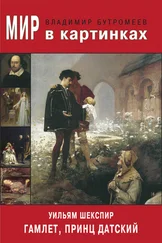Уильям Шекспир - Beautiful Stories from Shakespeare
Здесь есть возможность читать онлайн «Уильям Шекспир - Beautiful Stories from Shakespeare» — ознакомительный отрывок электронной книги совершенно бесплатно, а после прочтения отрывка купить полную версию. В некоторых случаях можно слушать аудио, скачать через торрент в формате fb2 и присутствует краткое содержание. Жанр: Европейская старинная литература, Драматургия, foreign_dramaturgy, на английском языке. Описание произведения, (предисловие) а так же отзывы посетителей доступны на портале библиотеки ЛибКат.
- Название:Beautiful Stories from Shakespeare
- Автор:
- Жанр:
- Год:неизвестен
- ISBN:нет данных
- Рейтинг книги:5 / 5. Голосов: 1
-
Избранное:Добавить в избранное
- Отзывы:
-
Ваша оценка:
- 100
- 1
- 2
- 3
- 4
- 5
Beautiful Stories from Shakespeare: краткое содержание, описание и аннотация
Предлагаем к чтению аннотацию, описание, краткое содержание или предисловие (зависит от того, что написал сам автор книги «Beautiful Stories from Shakespeare»). Если вы не нашли необходимую информацию о книге — напишите в комментариях, мы постараемся отыскать её.
Beautiful Stories from Shakespeare — читать онлайн ознакомительный отрывок
Ниже представлен текст книги, разбитый по страницам. Система сохранения места последней прочитанной страницы, позволяет с удобством читать онлайн бесплатно книгу «Beautiful Stories from Shakespeare», без необходимости каждый раз заново искать на чём Вы остановились. Поставьте закладку, и сможете в любой момент перейти на страницу, на которой закончили чтение.
Интервал:
Закладка:
E. Nesbit
Beautiful Stories from Shakespeare
“It may be said of Shakespeare, that from his works may be collected a system of civil and economical prudence. He has been imitated by all succeeding writers; and it may be doubted whether from all his successors more maxims of theoretical knowledge, or more rules of practical prudence can be collected than he alone has given to his country.” -Dr. SAMUEL JOHNSON.
PREFACE
The writings of Shakespeare have been justly termed “the richest, the purest, the fairest, that genius uninspired ever penned.”
Shakespeare instructed by delighting. His plays alone (leaving mere science out of the question), contain more actual wisdom than the whole body of English learning. He is the teacher of all good- pity, generosity, true courage, love. His bright wit is cut out “into little stars.” His solid masses of knowledge are meted out in morsels and proverbs, and thus distributed, there is scarcely a corner of the English-speaking world to-day which he does not illuminate, or a cottage which he does not enrich. His bounty is like the sea, which, though often unacknowledged, is everywhere felt. As his friend, Ben Jonson, wrote of him, “He was not of an age but for all time.” He ever kept the highroad of human life whereon all travel. He did not pick out by-paths of feeling and sentiment. In his creations we have no moral highwaymen, sentimental thieves, interesting villains, and amiable, elegant adventuresses-no delicate entanglements of situation, in which the grossest images are presented to the mind disguised under the superficial attraction of style and sentiment. He flattered no bad passion, disguised no vice in the garb of virtue, trifled with no just and generous principle. While causing us to laugh at folly, and shudder at crime, he still preserves our love for our fellow-beings, and our reverence for ourselves.
Shakespeare was familiar with all beautiful forms and images, with all that is sweet or majestic in the simple aspects of nature, of that indestructible love of flowers and fragrance, and dews, and clear waters-and soft airs and sounds, and bright skies and woodland solitudes, and moon-light bowers, which are the material elements of poetry, – and with that fine sense of their indefinable relation to mental emotion, which is its essence and vivifying soul-and which, in the midst of his most busy and tragical scenes, falls like gleams of sunshine on rocks and ruins-contrasting with all that is rugged or repulsive, and reminding us of the existence of purer and brighter elements.
These things considered, what wonder is it that the works of Shakespeare, next to the Bible, are the most highly esteemed of all the classics of English literature. “So extensively have the characters of Shakespeare been drawn upon by artists, poets, and writers of fiction,” says an American author, – “So interwoven are these characters in the great body of English literature, that to be ignorant of the plot of these dramas is often a cause of embarrassment.”
But Shakespeare wrote for grown-up people, for men and women, and in words that little folks cannot understand.
Hence this volume. To reproduce the entertaining stories contained in the plays of Shakespeare, in a form so simple that children can understand and enjoy them, was the object had in view by the author of these Beautiful Stories from Shakespeare.
And that the youngest readers may not stumble in pronouncing any unfamiliar names to be met with in the stories, the editor has prepared and included in the volume a Pronouncing Vocabulary of Difficult Names. To which is added a collection of Shakespearean Quotations, classified in alphabetical order, illustrative of the wisdom and genius of the world’s greatest dramatist.
E. T. R.A BRIEF LIFE OF SHAKESPEARE
In the register of baptisms of the parish church of Stratford-upon-Avon, a market town in Warwickshire, England, appears, under date of April 26, 1564, the entry of the baptism of William, the son of John Shakspeare. The entry is in Latin-“Gulielmus filius Johannis Shakspeare.”
The date of William Shakespeare’s birth has usually been taken as three days before his baptism, but there is certainly no evidence of this fact.
The family name was variously spelled, the dramatist himself not always spelling it in the same way. While in the baptismal record the name is spelled “Shakspeare,” in several authentic autographs of the dramatist it reads “Shakspere,” and in the first edition of his works it is printed “Shakespeare.”
Halliwell tells us, that there are not less than thirty-four ways in which the various members of the Shakespeare family wrote the name, and in the council-book of the corporation of Stratford, where it is introduced one hundred and sixty-six times during the period that the dramatist’s father was a member of the municipal body, there are fourteen different spellings. The modern “Shakespeare” is not among them.
Shakespeare’s father, while an alderman at Stratford, appears to have been unable to write his name, but as at that time nine men out of ten were content to make their mark for a signature, the fact is not specially to his discredit.
The traditions and other sources of information about the occupation of Shakespeare’s father differ. He is described as a butcher, a woolstapler, and a glover, and it is not impossible that he may have been all of these simultaneously or at different times, or that if he could not properly be called any one of them, the nature of his occupation was such as to make it easy to understand how the various traditions sprang up. He was a landed proprietor and cultivator of his own land even before his marriage, and he received with his wife, who was Mary Arden, daughter of a country gentleman, the estate of Asbies, 56 acres in extent. William was the third child. The two older than he were daughters, and both probably died in infancy. After him was born three sons and a daughter. For ten or twelve years at least, after Shakespeare’s birth his father continued to be in easy circumstances. In the year 1568 he was the high bailiff or chief magistrate of Stratford, and for many years afterwards he held the position of alderman as he had done for three years before. To the completion of his tenth year, therefore, it is natural to suppose that William Shakespeare would get the best education that Stratford could afford. The free school of the town was open to all boys and like all the grammar-schools of that time, was under the direction of men who, as graduates of the universities, were qualified to diffuse that sound scholarship which was once the boast of England. There is no record of Shakespeare’s having been at this school, but there can be no rational doubt that he was educated there. His father could not have procured for him a better education anywhere. To those who have studied Shakespeare’s works without being influenced by the old traditional theory that he had received a very narrow education, they abound with evidences that he must have been solidly grounded in the learning, properly so called, was taught in the grammar schools.
There are local associations connected with Stratford which could not be without their influence in the formation of young Shakespeare’s mind. Within the range of such a boy’s curiosity were the fine old historic towns of Warwick and Coventry, the sumptuous palace of Kenilworth, the grand monastic remains of Evesham. His own Avon abounded with spots of singular beauty, quiet hamlets, solitary woods. Nor was Stratford shut out from the general world, as many country towns are. It was a great highway, and dealers with every variety of merchandise resorted to its markets. The eyes of the poet dramatist must always have been open for observation. But nothing is known positively of Shakespeare from his birth to his marriage to Anne Hathaway in 1582, and from that date nothing but the birth of three children until we find him an actor in London about 1589.
Читать дальшеИнтервал:
Закладка:
Похожие книги на «Beautiful Stories from Shakespeare»
Представляем Вашему вниманию похожие книги на «Beautiful Stories from Shakespeare» списком для выбора. Мы отобрали схожую по названию и смыслу литературу в надежде предоставить читателям больше вариантов отыскать новые, интересные, ещё непрочитанные произведения.
Обсуждение, отзывы о книге «Beautiful Stories from Shakespeare» и просто собственные мнения читателей. Оставьте ваши комментарии, напишите, что Вы думаете о произведении, его смысле или главных героях. Укажите что конкретно понравилось, а что нет, и почему Вы так считаете.

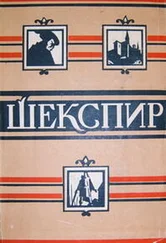

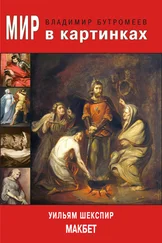
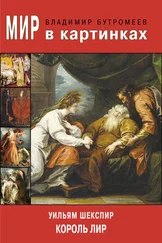


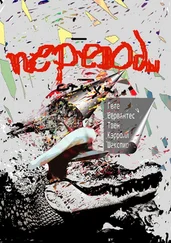
![Уильям Шекспир - The Works of William Shakespeare [Cambridge Edition] [Vol. 1 of 9]](/books/746589/uilyam-shekspir-the-works-of-william-shakespeare-c-thumb.webp)
